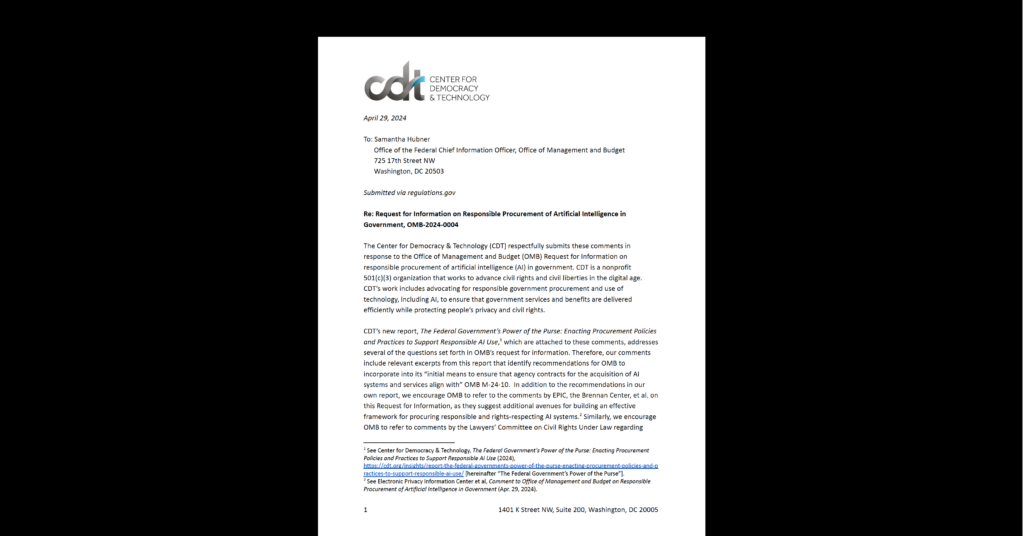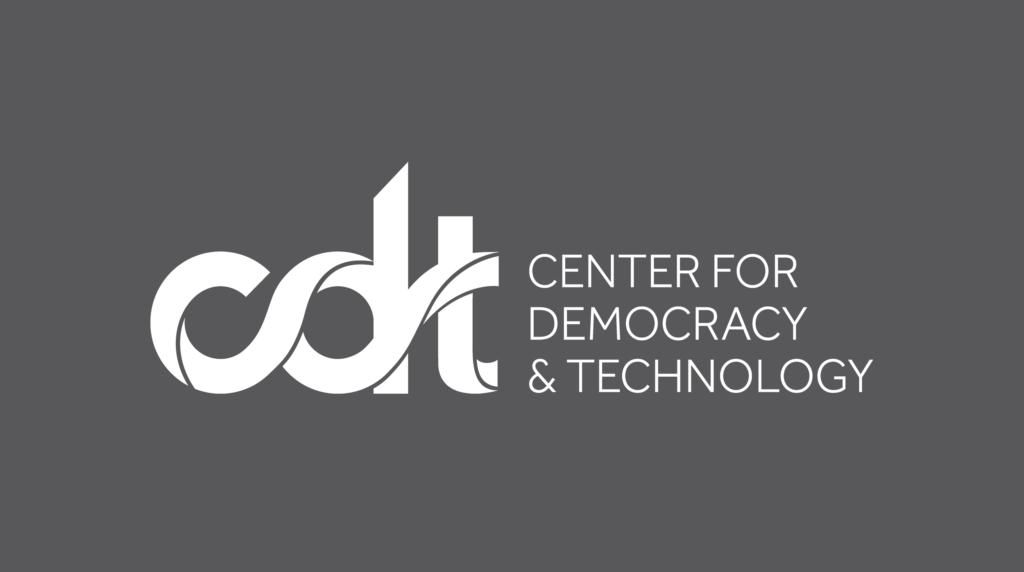AI Policy & Governance, Government Surveillance, Privacy & Data
King County, Wash., Bans Government Facial Recognition
by CDT intern Emma Li.
On June 1, 2021, King County in Washington state passed a measure prohibiting the county’s departments from using facial recognition technology. King County is the home of Seattle, Wash., has a population of 2.3 million, and is the 12th largest county in the U.S. The County stated that it was the first in the country to enact such a ban, which passed by a unanimous vote of the King County Council.
The county’s administrative offices and executive agencies are no longer allowed to employ facial recognition technology or use information that derives from such technologies. The ordinance also bars county departments from entering into agreements with third parties that would authorize the third parties “to use facial recognition technology or obtain facial recognition information on behalf of the county,” effectively closing a loophole that county officials might have used to get around a facial recognition ban.
There are several caveats to the facial recognition ban. While the ban applies to all county departments, including the King County’s Sheriff’s Office, it does not apply to cities within the county. In other words, city departments are still allowed to use facial recognition technology unless the city government bans or regulates it. Seattle, the major metropolis in King County, passed an ordinance in 2018, now Seattle Municipal Code Chapter 14.18, which requires that all use and acquisition of facial recognition technology be approved first by the City Council. In short, even though King County’s ban on facial recognition does not affect Seattle’s use of it, the city itself has fairly stringent guidelines for the use and acquisition of the technology.
At the county-wide level, there are two primary exceptions. First, county departments may use evidence related to a crime, even if that evidence was derived from facial recognition technology, but only if it was not “generated by or at the request of the county office or department.” Second, a county administrative office or executive agency may use facial recognition technology if it is used in compliance with the National Child Search Assistance Act.
The ban only applies to county government use of facial recognition technology, not private and commercial use. Nevertheless, King County’s ban on facial recognition is especially notable because it is home to the headquarters for both Microsoft and Amazon. Both of those companies offer facial recognition products, and they, along with IBM, have suspended the sale of their facial recognition technologies to police in response to last summer’s protests of police violence against Black people in America in the wake of George Floyd’s murder.
Jeanne Kohl-Welles, the King County Councilmember who sponsored the ordinance, stated, “The use of facial recognition technology by government agencies poses distinct threats to our residents, including potential misidentification, bias, and the erosion of our civil liberties.” Those biases were noted in the staff report for the proposed ordinance, which mentioned how facial recognition technologies were often not as adept at recognizing faces in certain demographics, including Black people and women. The staff report on the bill also noted the potential for civil liberties infringement, such as violating people’s expectations of some level of anonymity when in a public space and potential monitoring, tracking, and sale of data about individuals’ movements without their consent.
The staff’s concerns echo those found in academic studies about facial recognition technology. For example, the staff report cited the Gender Shades academic paper by Joy Buolamwini and Timnit Gebru, which determined that the datasets used to train facial recognition technology consisted predominantly of people with light-colored skin and in turn led to misclassification error rates of 34.7% for darker-skinned females, the highest rate of any group.
Another cited report described privacy, fairness, freedom and autonomy, and security as “moral and political considerations” for the use of facial recognition technology. This report mentioned such factors as differing recognition rates for groups such as Asian Americans and Black people as compared to white people, lack of transparency about how facial recognition information might be used, and lack of trust in how effectively government institutions safeguard personal data.
While King County is evidently the first county in the United States to ban facial recognition technology, a number of cities have already passed similar laws, including San Francisco, which in May 2019 became the first city to ban city agencies from using facial recognition technology, and Portland, which was the first city to ban both government and private use of facial recognition technology. Other cities, like Baltimore, are actively considering their own bans on facial recognition technology.
A few states have enacted legislation that regulates the use of facial recognition, including Vermont, where police cannot use facial recognition technology without the legislature’s express consent and, most recently, Massachusetts, where police are now required to obtain a court order before they can compare images of people to those in databases held by different government entities. Washington state itself has also passed a facial recognition privacy bill, which regulates state agency use of facial recognition by requiring accountability reports, public hearings, and a warrant in some circumstances, among other requirements.
King County’s ban on facial recognition reflects growing concern in the U.S., and globally, about the use of this technology because of its discriminatory impact and the threat it poses to anonymity and privacy.


